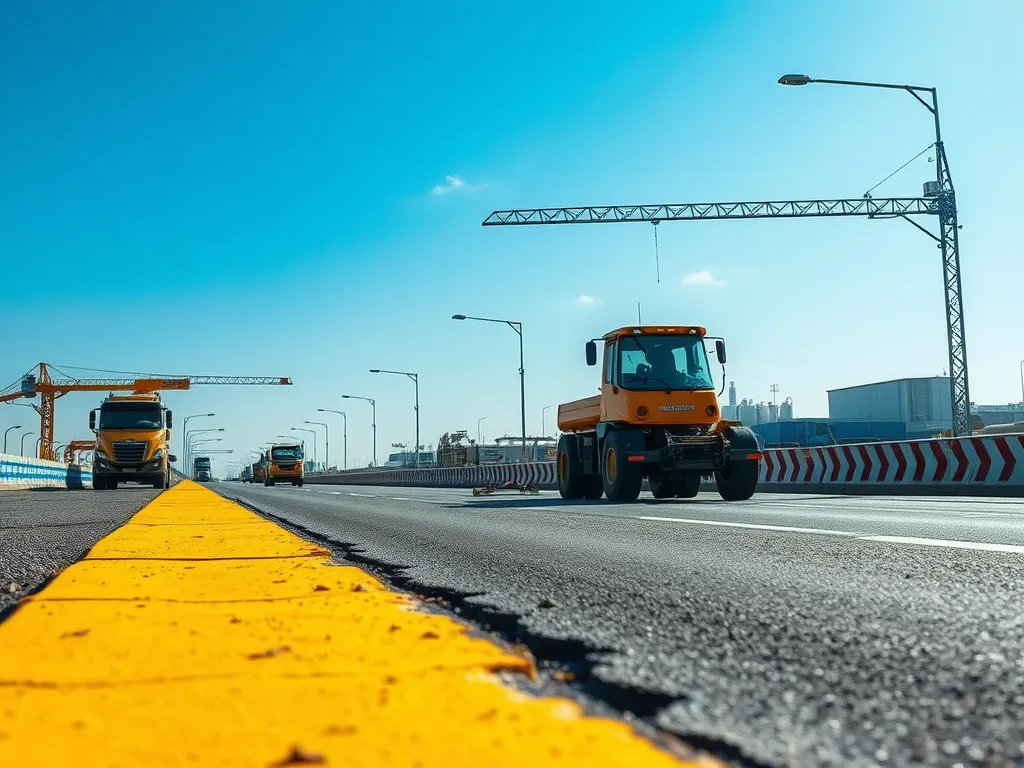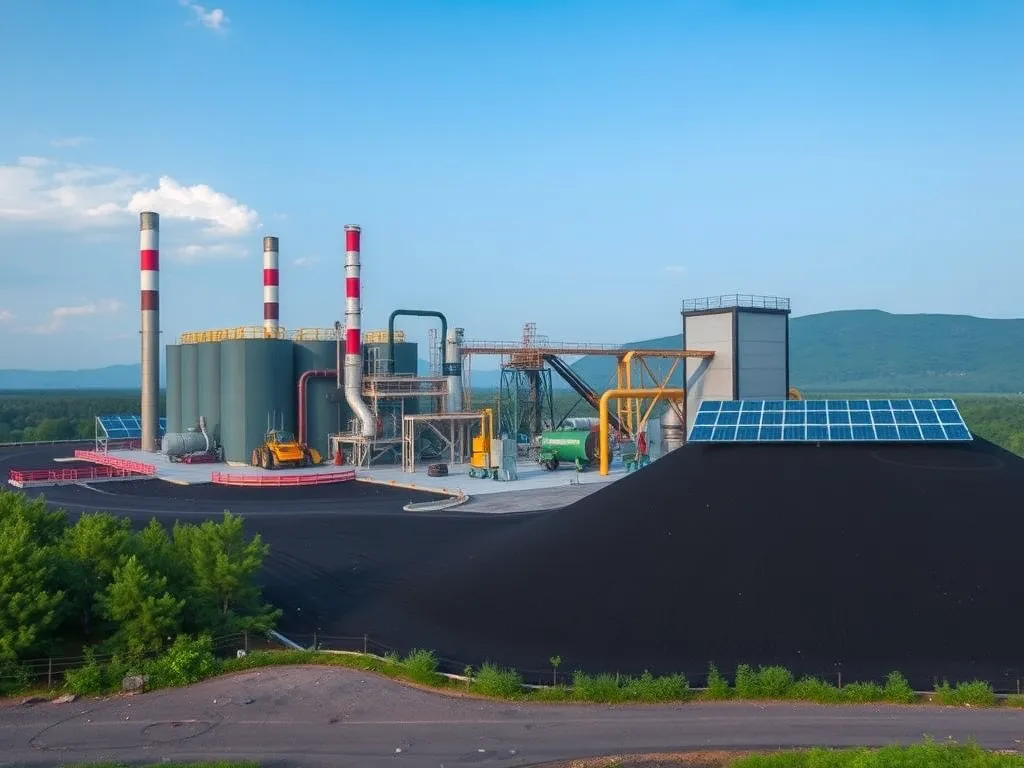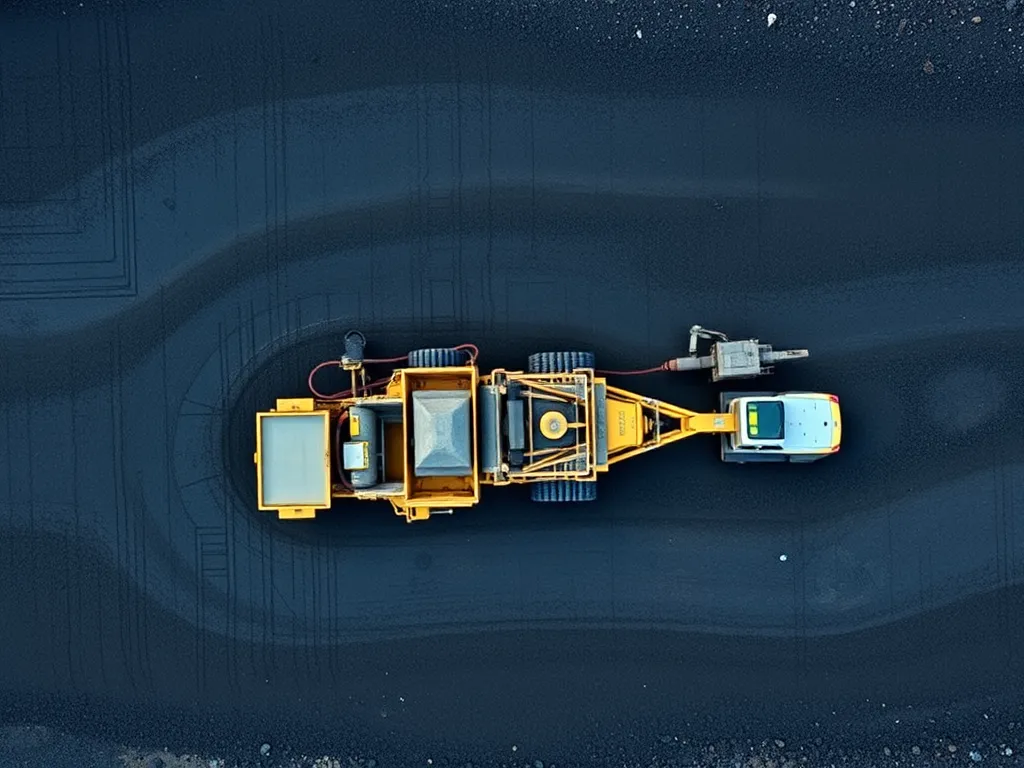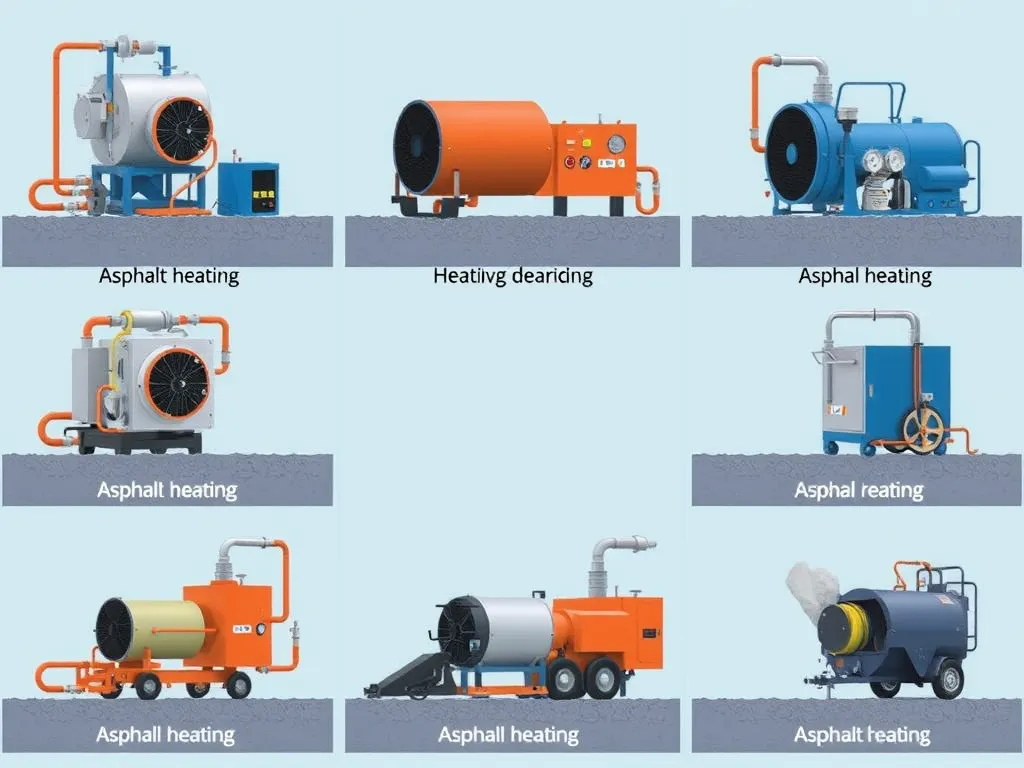Breaking Down Advanced Asphalt Costs: What Drives the Price?
Published on: November 4, 2025 | Last Updated: April 14, 2025
Written By: George Voss
Cost challenges in advanced asphalt implementation stem from complex material requirements, specialized labor needs, and high-tech equipment demands. Unlike traditional asphalt mixes, advanced formulas like polymer-modified binders or warm-mix asphalt (WMA) cost 20-35% more upfront. These methods require PG binders (performance-graded asphalt), precise temperature controls during installation, and crews trained in new paving techniques. External factors like crude oil price swings and environmental regulations add 10-15% to project budgets.
This article examines why advanced asphalt costs more and how to manage expenses. We break down material price trends, equipment rental rates averaging $1,200-$2,500 daily, and strategies like phased paving. Learn how recycled asphalt pavement (RAP) can cut costs by 30%, compare lifecycle costs between methods, and explore digital tools for real-time budget tracking.
Contents
- Why Does Asphalt Cost So Much?
- Factors Influencing Advanced Asphalt Prices
- Has Asphalt Cost Increased Recently?
- Hidden Costs in Advanced Asphalt Projects
- Strategies to Manage Advanced Asphalt Implementation Costs
- Environmental Considerations in Asphalt Cost Planning
- FAQ: Advanced Asphalt Cost Challenges
- Closing Thoughts
- Additional Resources for You:
Why Does Asphalt Cost So Much?
Advanced asphalt mixes bring durability but hit budgets hard. From cutting-raw inputs to labor gaps, multiple factors push up asphalt implementation costs.
Material Costs for Advanced Asphalt Mixes
High-performing mixes like polymer-modified asphalt or stone-matrix asphalt (SMA) need costly additives. PG (Performance Graded) binders, rubberized components, or recycled materials add $8-$15 per ton versus standard hot-mix asphalt. Warm-mix asphalt (WMA) technology cuts production temps by 50°F but requires chemical additives costing $3-$6 per ton. Local shortages of quality aggregates can spike material bills by 20% in regions with strict gradation specs.
- Polymer-modified binders: +$40-$60 per ton
- Recycled asphalt pavement (RAP): Up to 30% savings but needs $12k+ testing setups
- Superpave mixes: 15-25% costlier than conventional options
Specialized Labor and Training Expenses
Installing porous asphalt or perpetual pavements demands crews with NICET or ACI certifications. A single operator for spray paver systems earns $32-$45 hourly—25% above standard paving crews. Training programs for advanced compaction methods run $5k-$15k per team. Contractors report 3-week project delays due to staff skill gaps, inflating labor costs by 18%.
High-cost Equipment for Advanced Asphalt Installation
Infrared asphalt heaters ($150k-$250k) and recycling machines ($500k+) strain budgets. Intelligent compaction systems with GPS mapping add $75/hour in tech fees. Rental rates for advanced pavers hit $3k daily in high-demand markets. Upgrading a mid-size fleet to handle warm-mix or cold-in-place recycling can surpass $2M.
Facing these asphalt advance cost hurdles? Upcoming shifts in global oil markets might flip the script.
Factors Influencing Advanced Asphalt Prices
Advanced asphalt costs swing based on market forces, material networks, and legal demands. These three elements shape budgets for roads, driveways, and commercial paving projects.
Crude Oil Price Volatility and Asphalt Cost
Asphalt derives from crude oil, tying its price directly to petroleum markets. A $10/barrel oil jump can spike asphalt costs by $12-$15 per ton. PG (Performance-Graded) binders – engineered for specific climates – amplify this effect, as their production requires precise oil blends. During 2020-2022, crude prices swung from $37 to $122/barrel, pushing asphalt prices from $450 to $780 per truckload.
Supply Chain Complexities in Asphalt Material Sourcing
Modern mixes demand specialized components beyond standard aggregates:
- Polymer-modified binders (up to 18% cost premium)
- Fiber additives for crack resistance ($3.50-$7.00 per square yard)
- Regional shortages of high-quality limestone aggregates
The 2021 Texas freeze disrupted 40% of U.S. polymer production for six weeks, delaying projects and adding 9-14% to material budgets.
Regulatory Compliance and Environmental Fees
Meeting EPA and state standards adds $8-$22 per ton to asphalt costs:
- Stormwater filtration systems: $15-$25/ton
- Warm-mix asphalt tech (reduces emissions): 8-12% mix cost increase
- Recycling mandates requiring 20-30% RAP (Reclaimed Asphalt Pavement)
Non-compliance penalties can reach $75,000 daily, making upfront budget allocation critical.
These pricing pressures set the stage for examining recent market shifts shaping asphalt implementation budgets.

Has Asphalt Cost Increased Recently?
Economic pressures over the past three years have pushed asphalt prices upward by 22-38% nationally. Contractors report budget overruns of 15%+ on projects using advanced mixes like stone-matrix asphalt or warm-mix technologies. These surges stem from interconnected factors reshaping paving economics.
Impact Of Inflation on Asphalt Paving Budgets
Price escalations across the economy directly hit asphalt production. Bitumen—a petroleum byproduct—jumped 27% in 2023 alone. Labor wages for certified asphalt technicians rose 9% yearly since 2021, outpacing general construction pay hikes. Combined with permit fee increases (up 12-18% in major metros), these forces squeeze budgets for advanced asphalt systems requiring specialized materials and skilled crews.
Rising Fuel Prices and Asphalt Implementation Costs
Every asphalt ton requires 2-5 gallons of diesel for production and transport. With diesel averaging $4.15/gallon in 2023 (up 54% from 2020), hauling costs per mile spiked 33%. Plants using energy-intensive polymer modification face even steeper bills—adding $8-$12 per ton for PG 76-22 binder mixes. Projects extending beyond 50-mile transport radii now see fuel surcharges consuming 7-9% of total budgets.
Material Shortages and Advanced Asphalt Price Surges
Supply chain snarls continue disrupting key components. Recycled asphalt pavement (RAP)—a cost-saving staple—saw shortages in 22 states last year, forcing contractors to buy 15% more virgin aggregates. Specialty additives like styrene-butadiene-styrene (SBS) polymers remain scarce, with prices leaping 62% since 2021. These gaps create bidding wars, inflating advanced mix costs by $18-$45 per ton compared to conventional asphalt.
While visible expenses dominate discussions, less obvious factors also shape asphalt implementation budgets. Up next: uncovering hidden costs that catch project managers off-guard.
Also See: Cost-effective Solutions for Common Driveway Problems
Hidden Costs in Advanced Asphalt Projects
While upfront expenses dominate budget discussions, multiple hidden factors inflate spending on innovative paving systems. These less visible items frequently strain project funds when overlooked during planning.
Feasibility Studies for New Asphalt Technologies
Testing next-gen materials like polymer-modified binders or porous mixes requires rigorous vetting. Engineers conduct lab trials to verify performance under extreme temperatures or heavy traffic loads. Field pilots for warm-mix asphalt (lower-temperature production) or recycled rubber blends demand $15k-$50k per mile. These studies confirm viability but consume 3-8% of total project budgets before installation starts.
Quality Testing Requirements for Durable Asphalt Surfaces
High-performance mixes mandate strict quality control. Nuclear density gauges ($10k-$20k per unit) measure compaction rates during placement. Labs run Hamburg wheel-tracking tests ($500-$800 per sample) to predict rutting resistance. Permeability checks for drainage-focused designs add $200-$400 per test. Municipalities increasingly require third-party validation, doubling inspection fees compared to standard projects.
Long-term Maintenance Of Advanced Asphalt Systems
Innovative surfaces need specialized upkeep. Infrared patching for polymer-based pavements costs 30% more than conventional methods. Nano-sealants for crack prevention run $0.50-$1.25 per square foot yearly. Budgets must factor in 10-year lifecycle plans with 15-20% higher yearly outlays versus traditional roads. Skipping these steps voids warranties on many advanced systems.
With these financial pressures mounting, project leaders seek smarter methods to streamline spending without cutting corners. Up next: proven tactics for balancing innovation with fiscal responsibility.

Strategies to Manage Advanced Asphalt Implementation Costs
Smart planning and tactical decisions can offset rising asphalt costs without sacrificing quality. Focus on three proven approaches to control budgets for high-tech mixes.
Leveraging Supplier Partnerships for Material Savings
Strong bonds with asphalt suppliers cut costs for high-tech mixes. Bulk buying through multi-year contracts locks in pricing for polymer-modified binders and porous asphalt materials. Groups that commit to long-term buying can gain up to 15-20% savings on PG 76-22 binders compared to spot buying. Partnerships also grant priority access to recycled asphalt pavement (RAP), which lowers mix costs by $8-$12 per ton.
Phased Implementation to Balance Asphalt Budgets
Dividing projects into phases balances upfront spending with long-term goals. Starting with high-impact zones—busy crossroads or industrial truck paths—allows agencies to apply advanced materials where they matter most. A city might spend 30% of its total paving budget on phase one, using stone matrix asphalt for heavy traffic corridors. Subsequent phases can follow as funding allows, minimizing financial strain.
Adopting Cost-tracking Tools Like Asphalt Calculators
Digital tools like asphalt calculators provide instant clarity on paving costs. Input project size (in square yards or tons), local material pricing, and labor rates to get real-time totals. For a 10,000-square-foot lot, a calculator might show a $28,500 outlay using warm-mix asphalt versus $32,500 for traditional hot-mix. Cloud-based systems sync with accounting platforms, flagging cost overruns when asphalt prices jump mid-project.
Managing asphalt budgets requires both smart planning and adaptability—qualities that also prove vital when addressing environmental factors in paving projects.
Environmental Considerations in Asphalt Cost Planning
Environmental rules shape asphalt project budgets more than ever. Federal mandates and state-level policies now require eco-friendly methods, adding layers to project expenses.
Recycling Requirements and Asphalt Resurfacing Budgets
Recycled Asphalt Pavement (RAP) use cuts material costs by 30-50% but demands specialized processing. Plants need $250,000-$500,000 upgrades to handle RAP mixes. PG binders (performance-graded polymers) boost recycled blend stability, adding $8-$15 per ton. State DOTs often mandate 20-30% RAP content, forcing contractors to balance savings against equipment investments.
| Project Type | RAP Cost/Ton | Virgin Mix Cost/Ton |
|---|---|---|
| Highway Resurfacing | $45-$55 | $70-$85 |
| Parking Lot Paving | $50-$60 | $75-$90 |
Emission Control Costs in Advanced Asphalt Production
Clean Air Act rules push plants to install $1.2M-$2M baghouse filters. Warm-mix asphalt tech slashes fuel use by 20% but requires chemical additives costing $3-$7 per ton. Carbon capture systems add $12-$18 per ton to asphalt price. California’s AB 32 carbon fees tack on $4.50 per ton for asphalt produced in-state.
New EPA standards for particulate matter (PM2.5) took effect January 2023. Plants must now monitor emissions in real-time using $180,000 sensors. Tax credits cover 30% of these upgrades, but upfront costs strain smaller operators. Solar-powered asphalt heaters reduce reliance on natural gas but need $500,000 installations.
These green investments often pay off within 5-7 years through energy savings and tax breaks. Up next: smart ways to handle immediate budget pressures while planning for asphalt’s eco-future.

FAQ: Advanced Asphalt Cost Challenges
Why Does Advanced Asphalt Cost More Than Traditional Methods?
Advanced asphalt typically incorporates specialized materials and innovative technologies designed for enhanced performance and durability. These include polymer-modified binders, which can significantly increase material costs, and require specialized equipment and skilled labor for installation. As a result, projects utilizing advanced asphalt are more expensive compared to traditional methods that do not have these added complexities.
How Do Fuel Prices Directly Affect Asphalt Installation Costs?
Fuel prices dramatically influence asphalt costs due to the heavy reliance on diesel for production and transportation. Since asphalt is derived from crude oil, fluctuations in oil prices also directly impact asphalt prices. When fuel costs rise, so too do the costs associated with hauling materials and running equipment, which can add to the overall expenses of asphalt projects.
Can Technology Reduce Long-term Asphalt Maintenance Expenses?
Yes, adopting advanced technologies can lead to lower long-term maintenance costs. Innovative asphalt solutions, such as self-healing materials and high-performance surface treatments, can increase durability and extend the lifecycle of asphalt pavements. While these technologies may involve higher initial costs, they often pay off over time by reducing the need for frequent repairs and maintenance.
Closing Thoughts
Advanced asphalt implementation presents unique cost challenges that require careful consideration. Understanding the various factors at play—from material expenses and labor to the impact of crude oil prices and supply chain complexities—is vital for effective budgeting.
As you navigate these financial hurdles, employing strategies like leveraging supplier partnerships and phased implementation can mitigate costs. Additionally, staying informed about environmental regulations and hidden expenses will ensure you’re prepared for long-term maintenance needs.
For more insights and tools to assist you in your asphalt projects, check out Asphalt Calculator USA. Your success in managing asphalt costs starts with informed planning and resource management.
Additional Resources for You:
- Kett, I. (1999). Asphalt Materials and Mix Design Manual. Oxford: Elsevier Science.
- Asphalt – Pavement & Materials – Pavements – Federal Highway Administration
- Four Common Challenges of Asphalt Paving – Cassidy Paving
- Future challenges for the asphalt paving industry – Asphalt magazine
- Geosolutionsinc


